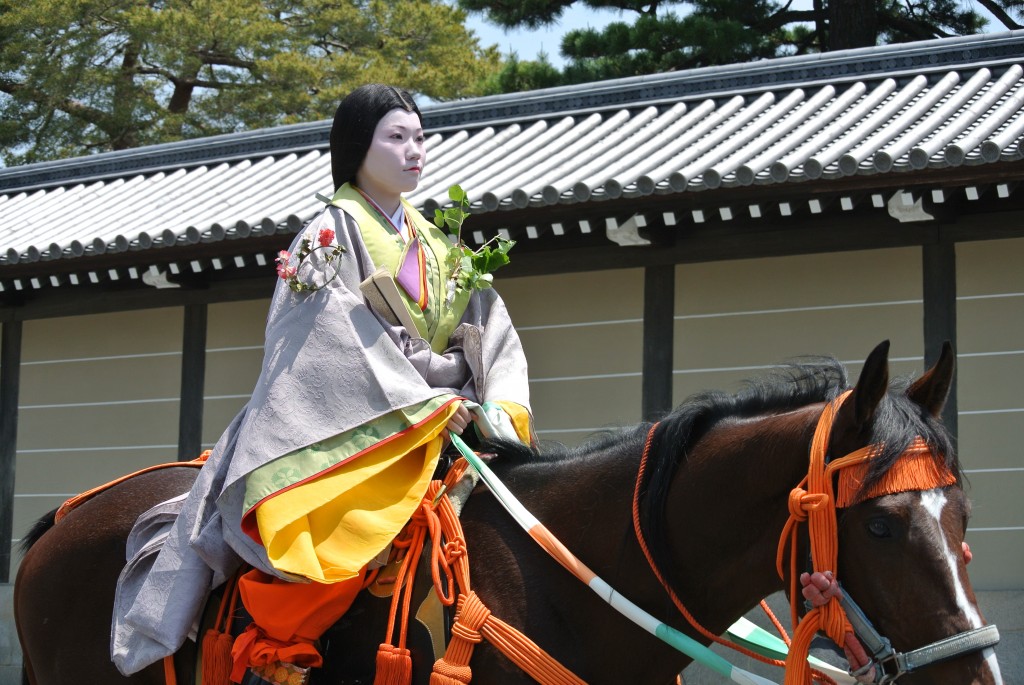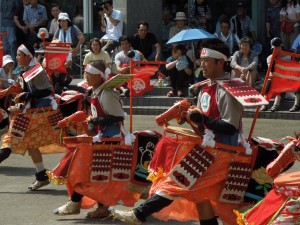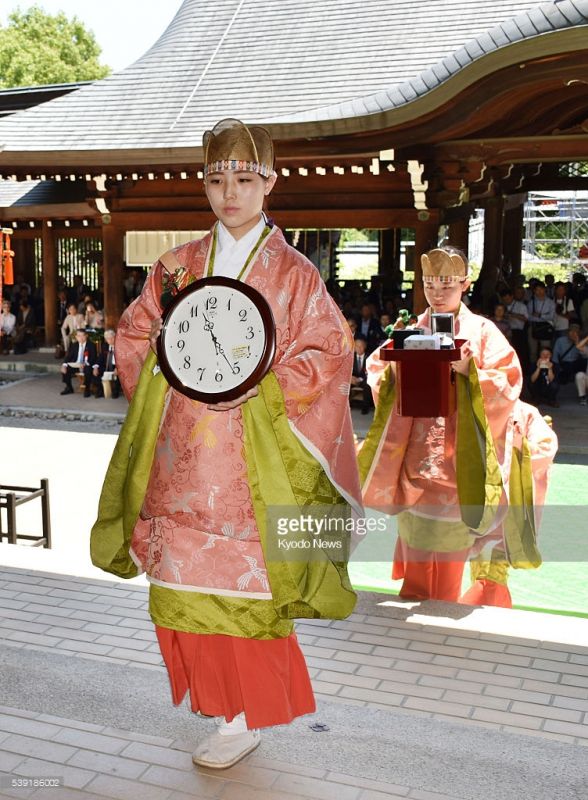
Some of Japan’s many festivals are little more than historical pageants (here a court lady of the Heian Period is represented in Kyoto’s Jidai Matsuri)
One of the prime functions of Shinto in Japan is the sacralisation of the country’s history. It’s a vital part of the national sense of identity, and why Shinto is sometimes called a religion of Japaneseness. The role shrines play in maintaining a record of the past is not given sufficient recognition, yet it is an essential part of their make-up and a typical feature of primal or shamanic religions. The preservation of tradition, the annual reenactments of age-old customs, the costumed performances of ancient arts, all contribute to ensuring that the past is never forgotten but preserved in the hearts of the living.

Warrior skills, here celebrated at a Tohoku festival,
The number of festivals and celebrations in Japan is remarkable, and the participation rate strikingly high even in an age of mobility and fractured communities. Generation after generation the same rituals, the same events, the same ceremonies are put on for the entertainment of the kami. The festivals thus act as a means of binding the present to the past. Lafcadio Hearn was right: in Japan the dead govern the living.
Virtually every festival in Japan could serve to illustrate the importance to shrines of recording history, but an article in the Japan Times drew attention to an example involving a relatively new festival, started in 1941, which interestingly involves clocks and marking time. In this way, by observing time past, the community honours the achievements of its ancestors. In Japan you don’t need to study history to be aware of the past. History lives in the present.
Festival celebrating Japan’s first clock held in Shiga shrine
OTSU – Women and men clad in ancient Japanese court dress took part in an annual clock festival Friday at a shrine to a seventh century emperor in Shiga Prefecture who is said to be the founding father of the clock time system in Japan.

(courtesy Getty Images)
As musicians played flutes and drums, the participants, including representatives of the clock industry, offered the latest products from Japanese clock makers to Omi Shrine to show its deity, Emperor Tenji (626-672), how clocks have developed.
According to the shrine in Otsu, Emperor Tenji introduced a water clock known as rokoku in Shiga’s capital, where the shrine is situated, on April 25, 671. The emperor is said to have believed in the importance of clocks to Japan’s development.
The ringing of the bell of the first clock in Japan was recorded in the “Nihon Shoki” (“The Chronicles of Japan”), an ancient book of history.
April 25 corresponds to June 10 in the solar calendar, thus June 10 was designated as Clock Day in Japan in 1920. The shrine, built in 1940, started holding the festival every June 10 in 1941.

Leave a Reply